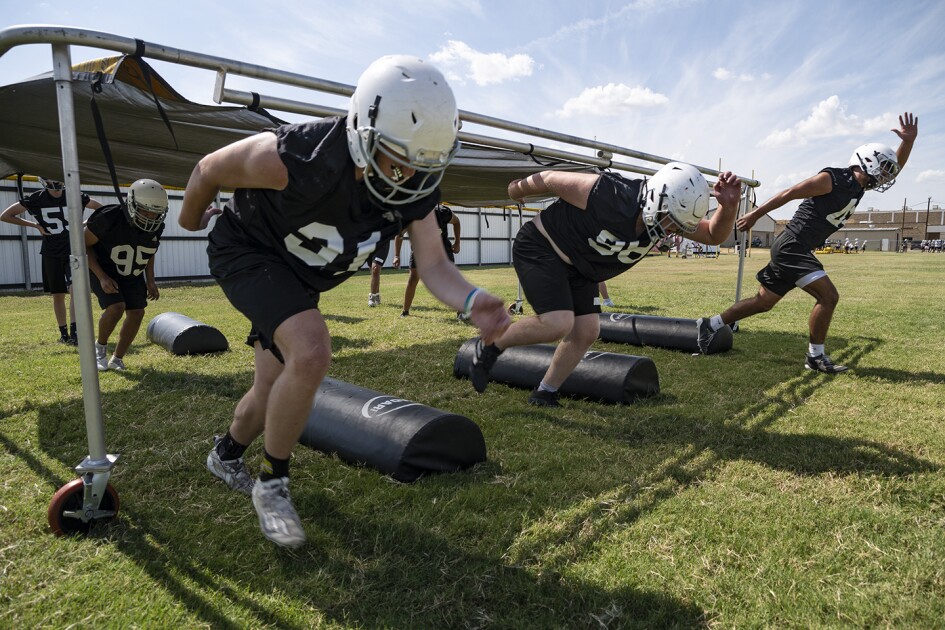Two-hundred student activists from across a dozen states have collaborated to write a pair of House resolutions calling on U.S. lawmakers to take action on climate change—specifically, how it affects the nation’s youth and schooling.
The resolutions, being introduced by Democratic Reps. Mike Thompson and Barbara Lee, both from California, call for the House of Representatives to support comprehensive K-12 climate change education in schools and greater mental health investments for children and teens impacted by the changing climate.
It’s the latest example of K-12 students—galvanized by an issue they see as disproportionately affecting them and their futures—increasingly flexing their civic muscle both through protests and more formal policy pathways.
“As high school students, we represent nonvoting constituents, without the ability to vote, we utilize policy writing as an outlet to participate in our democracy,” said Lily Gelb, a junior at Sonoma Academy, a private high school in Santa Rosa, Calif., and a co-author of one of the resolutions, during a press conference on Capitol Hill announcing the resolutions. “It’s essential for our voices to be heard and to be included because we provide a unique and informed perspective given that we will be disproportionately impacted by the effects of the climate crisis.”
The resolutions address two issues that are top of mind for many teens, according to a nationally representative survey of 13- to 18-year-olds conducted by the EdWeek Research Center and the polling firm IPSOS.
About one in three teens say that climate change makes them feel anxious, afraid, or helpless.
And teens want to learn more about climate change in school: More than half of middle and high school students surveyed said they want to learn more in school about how climate change will affect the earth and society (65 percent), what they can personally do to lessen the effects of global warming (52 percent), and the science behind climate change (51 percent).
While the majority of teens—nearly 8 in 10—correctly state that climate change is real and that it is mainly caused by human activity, many remain confused over the details of the science behind global warming.
Nearly half of teens in the EdWeek survey said incorrectly that a hole in the ozone layer created by gases from spray cans and refrigerators is a major contributor to climate change and more than a quarter incorrectly cited solar flares and increased radiation from the sun as being a major contributing factor.
There is broad scientific consensus that recent and rapid climate change is primarily driven by humans burning fossil fuels like coal, oil, and gas, which release greenhouse gases that trap heat in the Earth’s atmosphere. This, in turn, warms the planet, causes the ice caps to melt, and alters weather patterns.
In terms of where teens get their information on climate change, teachers are the most cited source. Sixty-six percent of teens say they learn a lot or some about climate change from their teachers—followed by parents and social media.
However, teachers may not be prepared to discuss climate change in their classrooms: three out of every four teachers say that they have not received any training or education on how to teach about climate change.
The resolution authored by the students, which, if passed, would not have the binding force of law, states that the House would support integrating climate change curricula into K-12 schools in all states and the District of Columbia as well as funding for teacher education and professional development, among other steps.
The second resolution calls for the House of Representatives to direct funding to school districts to provide more mental health supports to students and families, among several other actions.
But with a Republican-controlled House, it is unlikely the resolutions will pass.
Teens are concerned about global warming and it’s affecting their mental health
Sizable shares of teens report feeling anxious (37 percent), afraid (34 percent), and helpless (30 percent) over the implications of climate change. This comes at a time when youth mental health is already suffering.
For many youth, those feelings are rooted in personal experiences, such as witnessing first-hand the destructive effects of increasingly frequent wildfires, intense storms, extreme heat, and severe flooding from sea level rise.
Their emotions, however, are mixed: Nearly a quarter say that when they think about climate change and its effects they feel motivated and another 17 percent say they feel optimistic.
How climate change might alter their futures is also weighing on many teens. Thirty-seven percent say the threat of climate change is affecting where they want to live as an adult; 27 percent say it’s influencing what kind of career they want to pursue; and a quarter say it is impacting their desire to have children.
“I will be 40 in 2050,” said Shiva Rajbhandari, a senior at Boise High School in Boise, Idaho, who spoke at the press conference. Shiva was also elected in September to the local school board. “These policies that we’re putting into place today will impact my generation the most.”










